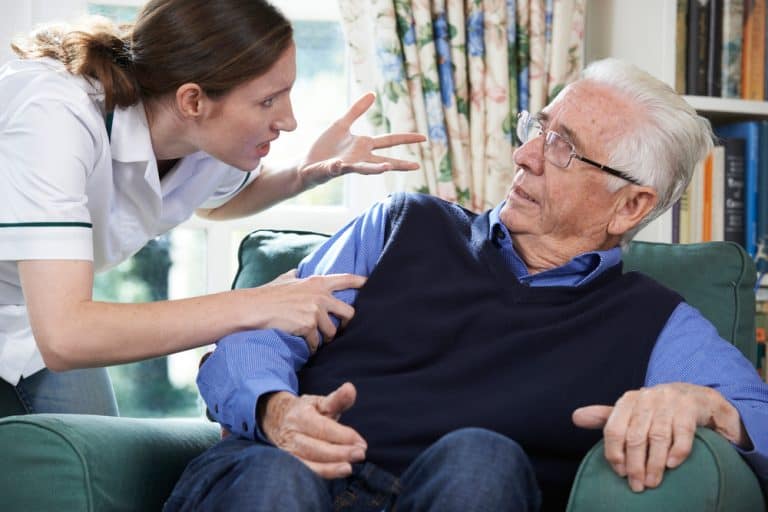Sometimes referred to as “logicians” or “objective analysts,” INTP is a rare personality type that is detached, analytical observers with a passion for logical analysis, theories, design, systems, and the search for universal truth. However, the brilliance of INTPs sometimes comes with social awkwardness. So how does an INTP overcome their social awkwardness?
INTPs are often preoccupied with complex thoughts, theories, and the pursuit of universal truth. Thus, it is common to find INTPs who are uninterested in social settings. If INTPs believe their awkwardness harms their lives, mindfulness and professional help are advised.
Understanding how INTPs think and operate is an excellent starting point for understanding why many INTPs exhibit socially awkward behavior and mannerisms. Afterward, methods about how to cope or improve one’s social situation as an INTP will be explored:
What Makes INTPs Socially Awkward?
INTPs are often preoccupied with puzzles, questions, and theories in pursuit of universal truth. Therefore, it is common for INTPs to get lost in thought and constantly debate their ideas at all hours of the day within their minds.
Outside observers may sometimes see INTPs as being lost in a daydream, even when the INTP is fully engaged in deep philosophical thought. The result of constant self-thought results in people that may come across as pensive, detached, and reserved.
However, this can simply be a sign of a shy and/or introverted person. Where INTPs may fall into the realm of being socially awkward is when they are forced to communicate their thoughts, feelings, and opinions to others that have not been party to the internal dialogue/debates of the INTP.
In these instances, interacting with others can be an exhaustive process for an INTP, whereby they can come across as disinterested or socially awkward in conversation if they fail to find somebody on their wavelength that can match their passion/enthusiasm for a topic.
Therefore, when energized by fruitful debate and conversations, INTPs are unlikely to exhibit the levels of social awkwardness typically associated with them. Although, INTPs are likely to forego social niceties like “small talk” instead opting for genuine, honest, blunt, and thought-provoking discussions.
Further to the above, INTPs typically display other weaknesses that can make them challenging to interact within social settings:
- INTPs are often disconnected from others,
- INTPs can come across as insensitive,
- INTPs can be negative and dissatisfied,
- INTPs are often impatient with others,
- INTPs are perfectionists.
INTPs cannot always rely on others to energize and invigorate their social skills, meaning that it is vital for INTPs to find alternative methods to improve their social interactions.
How To Tell If You Are A Socially Awkward INTP
Determining your personality type requires taking the Myers–Briggs personality test.
If the test suggests you are an INTP, this does not automatically mean you are a socially awkward person! Many INTPs are fantastic conservationists who may use different techniques to improve their social skills (more on that below.)
However, there are signs that you may be socially awkward, which may require these techniques. (Note: while being socially awkward is not an inherently bad trait, improving social interaction may assist you with any confidence/anxiety issues you may have):
- Failure to notice social cues,
- Failure to maintain appropriate eye contact,
- Unsure of proper physical actions in social settings,
- Misinterpreting the “flow” of a conversation (particularly in groups)
- Misunderstanding other people’s body language,
- Uncertain about how to use body language in social settings,
- A fear/anxiety of social settings,
- Failing to make friends/form connections with others,
- Spending a lot of time over-analyzing social settings,
- Being ridiculed by others for your actions in social settings,
- Feeling rejected and not understood by others,
- Experiencing physical signs of distress in social settings such as nausea.
What Can An INTP Do To Be Less Socially Awkward?
There are some tried and tested methods INTPs, and other personality types can use to improve their social confidence:
- Understanding social awkwardness,
- Directly acknowledge social awkwardness,
- Practice interacting with others,
- Practice mindfulness,
- Seek professional assistance.
1. Understanding Social Awkwardness
Because INTPs like to have an intellectual grasp on issues, doing a deep dive into the reasoning and psychology behind social awkwardness can help INTPs uncover solutions that best suit their challenges in social interactions.
Furthermore, doing some research on social awkwardness helps INTPs realize that social awkwardness is due to unique social settings that everyone may be prone to, meaning it is not some type of affliction or character flaw.
2. Directly Acknowledge Social Awkwardness
If you find yourself doing something socially awkward, ignoring this interaction often leads to further awkwardness. Instead, these moments should be met with brevity, such as a joke or direct acknowledgment if the exchange led to unintended offense.
3. Practice Interacting With Others
Although it can be difficult for INTPs to willingly put themselves into social situations, practicing social interactions with friends and family is a great way to practice social skills and receive constructive feedback from a loved one.
4. Practice Mindfulness
Mindfulness involves staying in the present and being more attentive. Learning to pay attention to others and your soundings is vital for INTPs, as they are prone to daydreaming, which is often seen as rude or inappropriate by outside observers.
5. Seek Professional Assistance
Suppose the above techniques are not of any assistance, and/or you believe you may have a deeper underlying condition like social anxiety or depression. In that case, it is advisable for people with extreme social awkwardness to seek the services of a life coach and/or psychologist.
Conclusion
In conclusion, while INTPs are not inherently socially awkward people, they often have personality traits that make them prone to socially awkward interaction and mannerisms compared to other personality types.
Therefore, INTPs who believe their social awkwardness negatively affect their lives should practice some techniques to improve their interactions with others and build confidence.






